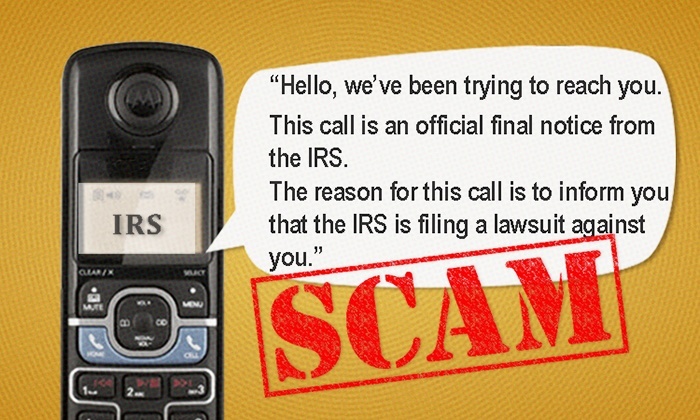
Avoid Being a Tax Scam Victim: Five Warning Signs That It’s NOT the IRS Calling
While the Internal Revenue Service may not be your favorite Federal agency, criminals falsely posing as IRS representatives are unquestionably the much greater enemy. As time and technology march on, scammers have been setting increasingly treacherous traps for swindling taxpayers’ assets, identities or both. To make matters worse, their favorite targets are those most likely to succumb to the trickery and least able to afford the assault – such as older adults, immigrants, and widows or widowers (in reference to their deceased spouse’s estate).
The Tax Scam du Jour
Even if you’re not in any of these categories, don’t let down your guard. Tax scams can happen to anyone. As Forbes’ “Tax Girl” Kelly Phillip Erb said while recommending that all taxpayers be on high alert: “It’s tax season. That, unfortunately, also means that it’s fraud season.”
The current popular scam goes something like this: Someone claiming to be an IRS or Treasury Department representative calls or e-mails you, claiming that you owe money, are in general tax-related trouble, or are otherwise required to act immediately in some way – or else. Often, they may know a lot about you such as your name, family members’ names, a portion of your Social Security number or additional contact information. (They have obtained these via Internet phishing scams.)
Identifying the Scam
At first, it may seem difficult to differentiate a fake IRS representative from the real deal. One of your key means of defense is to know how the IRS actually engages in legitimate queries and, as importantly, how it does not. If you have defrauded the U.S. Government, it’s possible to incur fines, penalties and, in extreme cases, even jail time. But none of these events happen in a vacuum. Here are five activities the IRS wants you to know it will NEVER do (as described on its Tax Scam/Consumer Alert page):
- The IRS will NEVER call to demand immediate payment, nor will the agency call about taxes owed without first having mailed you a bill.
- The IRS will NEVER demand that you pay taxes without giving you the opportunity to question or appeal the amount they say you owe.
- The IRS will NEVER require you to use a specific payment method for your taxes, such as a prepaid debit card.
- The IRS will NEVER ask for credit or debit card numbers over the phone.
- The IRS will NEVER threaten to bring in local police or other law-enforcement groups to have you arrested for not paying.
If you or a loved one receives a call, seemingly out of the blue, engaging in any of the above tactics, you can bet it’s a scam, even if the caller seems to know a good deal of information about you. Your best course of action is to:
- Hang up. Just as you would not engage in polite conversation with a burglar in your home or a thug on the street, there is no need to stand on formalities here.
- Report it. To go the extra mile, report the call to the IRS, to help prevent others from succumbing to the scam. For this, it’s worth making a note of the caller’s number.
United We Stand Against Tax Scams
Unfortunately, for every tax scam averted, others pop up. To remain abreast of the latest news, you can regularly visit the IRS’ Tax Scam/Consumer Alert website page. Or, feel free to be in touch with us with your questions and concerns. We all benefit when we stand broadly united against unscrupulous tax scams.
 Secure Document Sharing
Secure Document Sharing


